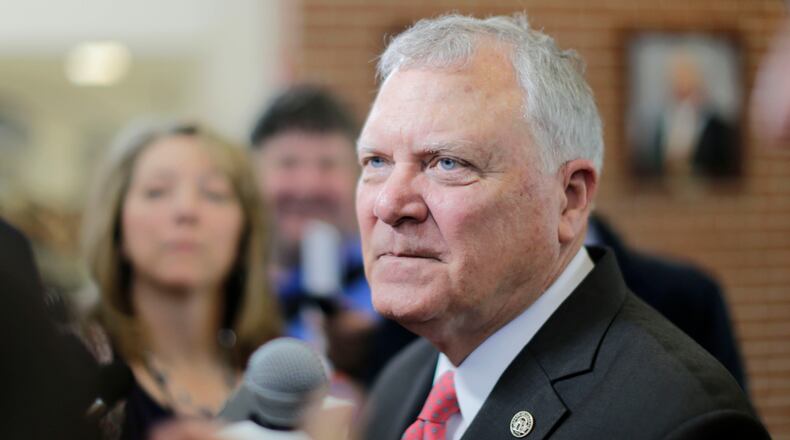Georgia's Medicaid program received a shot in the arm on Monday when Gov. Nathan Deal signed a measure into law that will avert a roughly $900 million gap in Medicaid funding.
The governor signed Senate Bill 70 into law after both chambers swiftly approved the measure, which allows the Department of Community Health board to levy a hospital provider fee for another three years.
The so-called "bed tax" requires hospitals to pay 1.45 percent of their net patient revenue which the state then uses to draw down additional federal funding to help fund Medicaid and bolster hospitals that provide care to uninsured patients. The funds add up: The hospital fee raises about $311 million and allows the state to tap another $600 million in federal funding.
First established in 2010, the fight over the legislation ignited a debate in 2013 when lawmakers voted to extend it four years. Anti-tax groups at the time criticized the measure as a tax hike and called it a gift to lawmakers eager to avoid a direct vote on extending the fee.
But Republicans dodged a touchy fight this year as Deal and other GOP leaders quickly united behind the measure, which passed with overwhelming bipartisan support. Only 17 lawmakers in both chambers voted against it, and an effort by fiscal conservatives to shorten the extension to one year was roundly defeated.
Much of the concern this year stemmed from questions about whether President Donald Trump’s plan to overhaul the Affordable Care Act would make the program obsolete. That prompted some legislators to back new limits for the program's extension.
“The blanket three-year renewal of the provider fee is the wrong way to go,” said state Rep. Geoff Duncan, a Cumming Republican and likely candidate for higher office. “In my mind, putting a one-year shot clock gives the Trump Administration the time they need to develop a strategy and put the best foot forward.”
The supporters, including state Sen. Butch Miller and other sponsors, argued the state health board has the power to cut its collection of the payment if that happens. So did Deal, who commended the “courage” of lawmakers to quickly adopt the measure to allow a new hospital provider fee, which the state health department is expected to soon enact.
“Because of their leadership and quick action on this matter,” he said, “we will not have to take away resources from other portions of the budget.”
About the Author
The Latest
Featured




